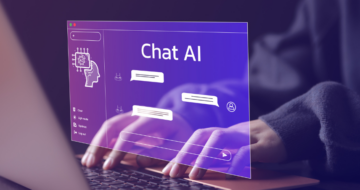
Blog
Business
Get valuable tips and tricks to use while running your business here.


Easiest Website Builders for Beginners in 2025

Why Shopify is the Best E-commerce Platform for Entrepreneurs in 2025

From Idea to Impact: GoDaddy’s Role in Entrepreneurial Growth

Quantum Computing vs. Cryptocurrency: Is Blockchain at Risk?

Revolutionizing Finance: The Impact of Cryptocurrency on the Financial Landscape

How NFTs Are Merging with Cryptocurrency to Create a Digital Gold Rush
The Technology Underpinning Cryptocurrency: An Understanding of Blockchain

Top 10 Questions to Ask When Choosing a New CLM

AI Conversational Platforms to Know in 2025

The Dark Side of Crypto: Hacks, Scams, and How to Stay Safe

Too Tired to Care? How Privacy Fatigue Is Affecting Company Employees

How to Create a Marketing Strategy for Your Business

SaaS Pricing Models: An Ultimate Guide (2024)

What Is Pay-as-you-go Pricing Model?

Software Buying Process: Key Steps
Sales
All about sales issues, trends, tips, and many more.

8 Effective Tips to Manage Your Sales Pipeline

9 Tips To Create an Effective B2B Sales Plan

11 Benefits of E-Signature Software in the Banking Industry

11 Winning Strategies for Creating a Great Sales Proposal

How to find your most profitable customer segments to speed up revenue growth

How good design & web psychology increase conversions of SaaS businesses

Business writing skills: how to compose a strong PowerPoint presentation?

Top 7 latest appointment setting tools for the best B2B lead generation
Customer Service
Get helpful tips and tricks from our expert and stay ahead of the industry trends.
Marketing
Find expert views on marketing topics, trends, and issues here.

Best Photography Apps for DIY Product Photography (Free & Paid)

7 Proven Ways Web Design Can Help Boost Your Search Rankings

10 Most Popular WordPress Video Plugins for Your Website

61 Email Marketing Terms Every Marketer Should Know – Ultimate Glossary

6 Clever Ways to Conduct SEO Competitor Analysis and Outperform Your Competitors

Why is Customer Retention Important and How Can it be Improved?

11 Tips for Using the Flywheel Effect To Build an Extraordinary Business



